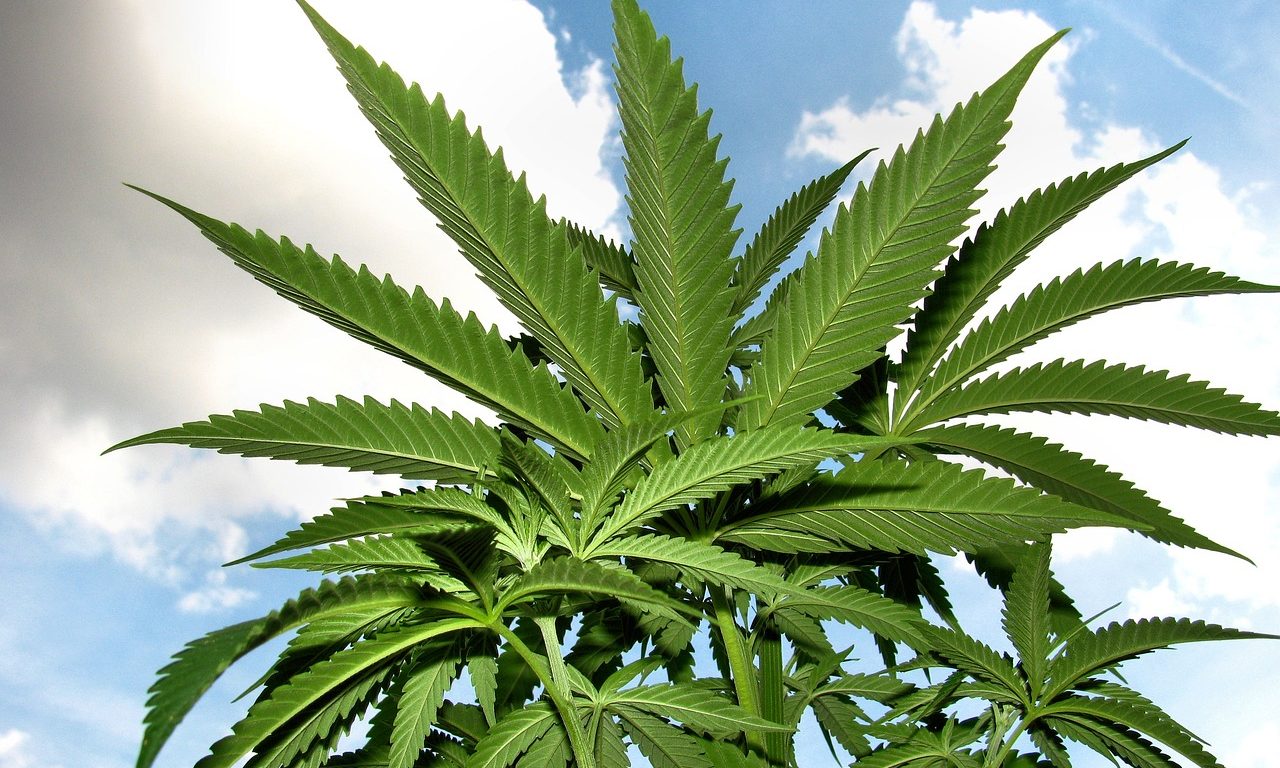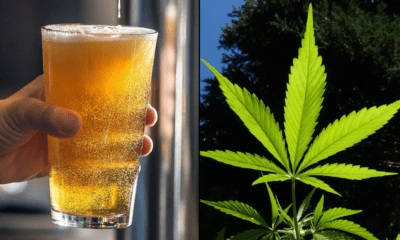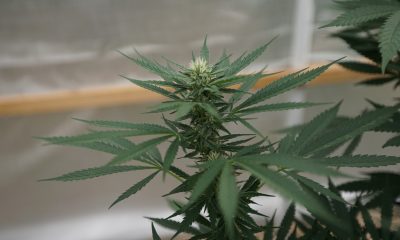Politics
New York Regulators Vote To Allow Marijuana Farmers Markets, While Nearly Doubling The Number Of Provisional Retailer Licenses

New York marijuana regulators have approved a resolution to authorize cannabis farmers markets where growers could sell their supplies while helping to meet consumer demand as the state works to open additional retail dispensaries.
The state Cannabis Control Board (CCB) passed the measure on Wednesday, along with separate resolutions focused on nearly doubling the number of approved conditional retailer licenses, enacting regulations for marijuana research, banning the sale of synthetic cannabinoids like delta-8 THC and other issues.
The authorization of the cannabis farmers markets—which regulators are calling the “Cannabis Grower’s Showcase”—comes about two months after an Office of Cannabis Management (OCM) official first disclosed plans to provide the alternative sales model.
Under the resolution, the board is says it wants adult-use cannabis cultivator and processor licensees to “bring their product to market and allow [conditional retail] licensees to sell such products simultaneously.”
BREAKING: #NYCCB approved the Cannabis Growers Showcase allowing licensees to partner on events to showcase & sell AU #NYcannabis products.
The CGS will:
✅ Expand access to safer products
🫱🏽🫲🏿 Enable consumers to connect w. licensees
⚙️ Protect the two-tier market— NYS Office of Cannabis Management (@nys_cannabis) July 19, 2023
The plan for the showcases is to have “a minimum of three growers” and at least one licensed retailer hosting farmers market-style events in municipalities that authorize them.
At least initially, on-site consumption will be prohibited because permitting people to use marijuana at the markets would require additional permitting from the state Department of Public Health. Also, organizers will have to ensure that alcohol isn’t also sold at the events.
Theoretically, farmers could seek municipal approval and hold the farmers markets on their own property. Or they could seek to join other events like concerts, fairs and festivals that are being separately organized.
The rules for the farmers market program aren’t available yet, however. The resolution simply authorizes OCM to issue an application for licensees to complete if they want to participate.
“The showcases will offer several benefits, including providing our consumers access to legal regulated cannabis in places which have limited or don’t yet currently have access to storefront sales,” OCM Director of Policy John Kagia said. “They’ll drive new revenue opportunities for our cultivators who are the anchors of our supply chain—and we’ve certainly heard from our cultivators [about] the urgency of a program like this to expand the retail sales.”
Meanwhile, the board also approved an additional 212 provisional retailer licenses—the largest single batch of approvals to date. This brings the states total to 463 licensees that are gearing up to serve the adult market. It’s expected to take six months to a year for the shops to open.
BREAKING: The CAURD program is expanding. An additional 212 provisional licensees have been approved by the #NYCCB, making this the biggest cohort to date.
The program now expands to 463 licenses as the State continues to work to build an equitable framework for #NYcannabis.
— NYS Office of Cannabis Management (@nys_cannabis) July 19, 2023
The actions taken by the board on Wednesday “will help to close a number of gaps and to improve the operations of our cannabis supply chain,” CCB Chair Tremaine Wright said. “We continue to revise, edit, develop and refine in an effort to make the current program as robust as possible.”
There are currently only 20 adult-use retailers operating in the state amid what many observers see as a troubled rollout that has seen delays in financing and opening storefronts that are supposed to be provided to equity retailers by the state.
Regulators also approved resolutions affecting the state’s medical cannabis and hemp programs. That includes the adoption of an emergency measure to prohibit the sale of synthetically produced hemp cannabinoid products like delta-8 THC and establish a minimum 15:1 CBD:THC limit for hemp items.
#NYCCB approves several regulations for hemp products to further protect the health and safety of New Yorkers, including establishing a minimum allowable CBD:THC ratio of 15:1, THC limitations, packaging & sale prohibitions to minors, and updating lab testing requirements.
— NYS Office of Cannabis Management (@nys_cannabis) July 19, 2023
CCB also passed a measure to revise medical cannabis regulations to require that the terpene content of marijuana products are included on labels. And it separately approved a resolution to authorize Coral Reef Labs to be one of the state’s independent cannabis testing lab.
#NYCCB approves several medical cannabis regulatory amendments which include, but are not limited to requiring terpene content to be reported on lab testing.
Terpenes may play a therapeutic role, therefore disclosing this info is important to many medical #NYcannabis patients.
— NYS Office of Cannabis Management (@nys_cannabis) July 19, 2023
Meanwhile, New York City officials announced on Tuesday that they’re seeking lenders to support a marijuana equity fund that will promote participation in the industry by people who’ve been disproportionately impacted by criminalization.
Gov. Kathy Hochul’s (D) administration is also stepping up its push to transition people to the legal market, despite the bottlenecking of getting approved retailer licensees launched so far.
That included launching a public education campaign in April encouraging adults to buy their marijuana from licensed shops to ensure that products are safe and that revenue is used to advance equity and reinvestment goals.
The New York Senate has also formed a committee focused exclusively on marijuana that will be collaborating with regulators as the state’s cannabis market evolves.
Officials did announce in March that they are doubling the number of conditional adult-use marijuana licenses that can be approved, from 150 to 300, after receiving feedback from certain applicants that they would be able to more expeditiously open storefronts without additional support through a state program designed to help eligible entities create physical locations.
The governor also recently introduced legislation to increase enforcement authority to crack down on illicit marijuana retailers as the state struggles to stand up the regulated adult-use market.
In December, Hochul separately unveiled a marijuana business and product verification tool, with plans to post a QR code on licensed cannabis retailers and a universal symbol label for authorized cannabis products.
She also signed a bill in late November aimed at expanding the state’s hemp market by promoting collaborative partnerships to identify more opportunities to utilize the crop and its derivatives for packaging, construction and other purposes.
The New York Senate also approved a bill last month that would provide tax relief to New York City marijuana businesses that are currently blocked from making federal deductions under an Internal Revenue Service (IRS) code known as 280E.
While Hochul signed a budget bill last year that included provisions allow state-level cannabis business tax deductions—a partial remedy to the ongoing federal issue—New York City has its own tax laws that weren’t affected by that change.
















